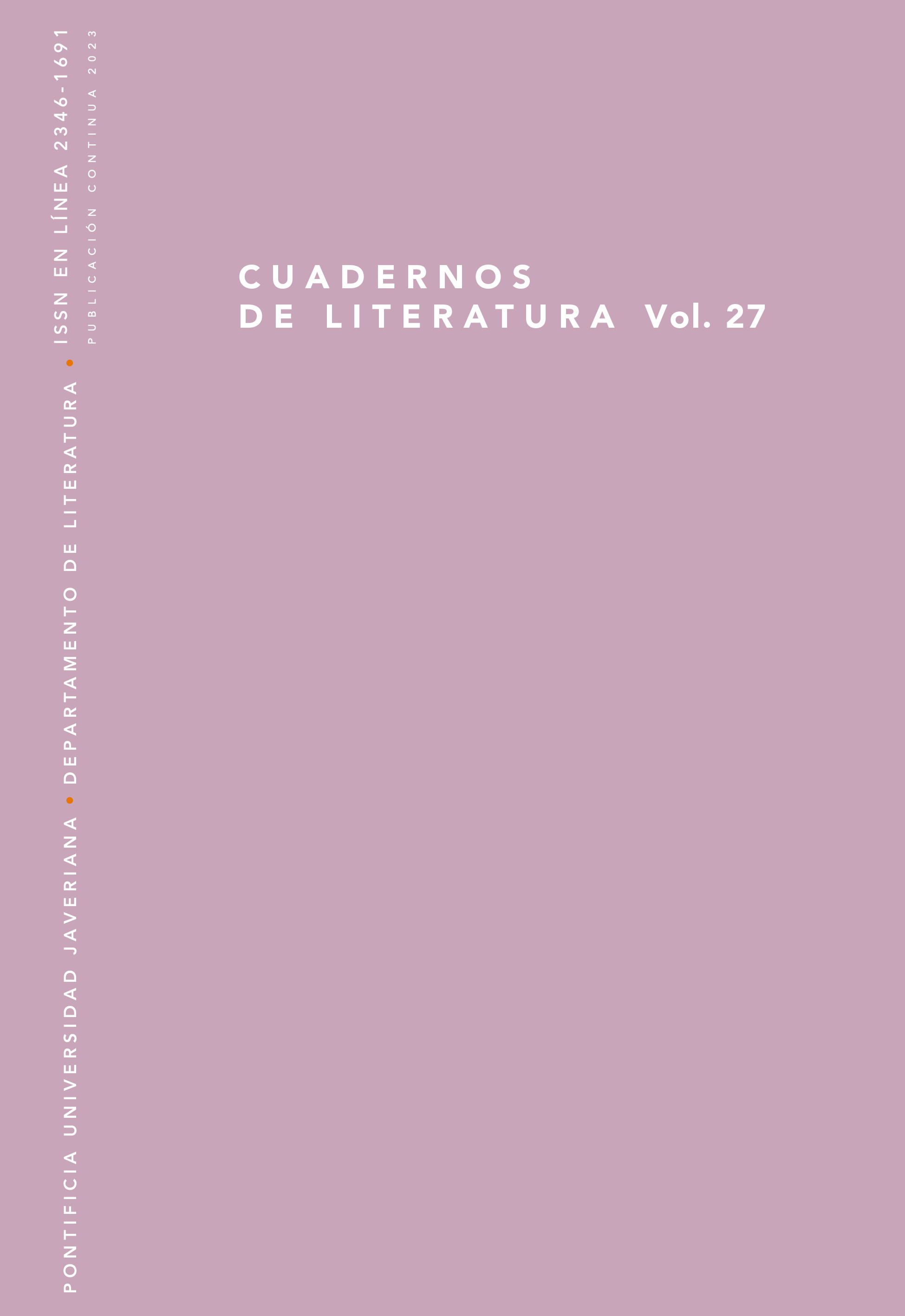Resumo
El artículo “Los umbrales del humanismo. Las polaridades de la cultura y sus relatos” pretende realizar una introspección del humanismo como un proyecto narrativo y como una configuración afectiva que requiere de prácticas y artefactos culturales para conformar sujetos y sociedades.
Desde una mirada transdisciplinar y desde variadas perspectivas se problematiza la noción de humanismo como una configuración afectiva que se teje desde dos experiencias fundamentales: lo sublime y lo abyecto. Extremos que en sus manifestaciones se hacen los ejes de elaboración de cualquier sentido de “lo humano” y que sustentan los diversos relatos y artefactos que en la cultura de Occidente se han identificado con el humanismo. Narrativas humanísticas que además se consolidan en variados productos estéticos y que en sus diversas propuestas desean ser sapienciales. Sabiduría práctica más que teorías o elaboraciones éticas o filosóficas; presupuestos primeros de cualquier grupo humano que en su función de base establecen modos de proceder individuales y prácticas sociales.
Barthes, Roland. El placer del texto. Siglo XXI, 1973.
Benjamin, Walter. “Tesis de filosofía de la historia”. Discursos interrumpidos I. Taurus, 1989, pp. 175-192.
Burke, Edmund. Indagación sobre el origen de nuestras ideas acerca de lo sublime y de lo bello. Traducido por Juan de la Dehesa, Universidad de Alcalá, 1807.
Cuartas, Carlos Julio. Humanismo y legado ignaciano. Grupo Editorial Ibáñez, 2015.
Eco, Umberto. Historia de la Belleza. Lumen, 2004.
Dolto, Françoise. Kaspar Hauser, le sequestre ou coeru pur. Mercure de France, 2002.
Hankiss, Agnes. “Ontología del yo: la recomposición mitológica de la propia historia de vida”. La historia oral. Métodos y experiencias. Debate, 1993, pp. 251-256.
Kristeva, Julia. Poderes de la perversión. Siglo XXI, 1989.
Lejeune, Philippe. Le pacte autobiographique. Seuil, 1996.
Mauer,
McIntyre, Alasdaire. Tras la virtud. Editorial Crítica, 1987.
Rubio, Jaime. “Lo sublime”. Universitas Philosophica, vol. 9, n.º 17-18, dic.1991-jun 1992, pp. 37-49.
Talon-Hugon, Carole. Goût et dégoût. L’art petut-il tout montrer ? Editions Jacqueline Chambon, 2003.
Vallejo, Fernando. El desbarrancadero. Debolsillo, 2016.
---. La virgen de los sicarios. Alfaguara, 1994.
Villegas, Juan. La estructura mítica del héroe moderno en la novela del siglo XX. Planeta, 1973.

Este trabalho está licenciado sob uma licença Creative Commons Attribution 4.0 International License.



